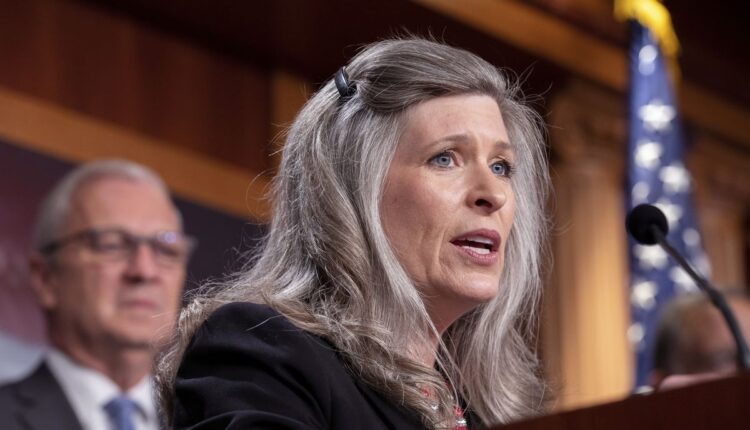Sen. Joni Ernst’s report squeaks about wasteful COVID-19 spending
The federal government’s coronavirus spending frenzy turned out to be a snow job in the truest sense of the word.
One Utah county spent more than $ 200,000 of its COVID-19 money making snow on a hill for sledding.
Auditors said Uintah County bought six $ 20,000 snow cannons along with snow groomers and pipes, and paid $ 3,000 in shipping costs, all of which were approved by a single district commissioner. Local politicians told the Uintah Basin Standard that they would set a deadline to either use the money or return it to the state, so they needed a reason to spend. And they chose snow.
Senator Joni Ernst on Monday dedicated their December Squeal Award, which highlights ridiculous government waste, to Uintah and other state and local governments that have found creative Christmas ways to waste COVID money.
This includes Connecticut, where West Haven city officials are spending federal coronavirus funds on Christmas decorations.
The CT Mirror said Christmas wasn’t the only holiday city officials gifted with federal money. They also hired a 20-piece band to march in the Memorial Day parade with $ 7,000 of Uncle Sam’s money.
ALSO SEE: House GOP Investigates COVID Unemployment Benefits for China, Russia
A local Republican politician eyeing the Democratic mayor’s seat told CT Mirror the spending was “very suspicious”.
A West Haven city employee who also served as a member of the area’s state house has been charged with a plot that federal prosecutors say has diverted hundreds of thousands of dollars in coronavirus money to a mailbox company he controls.
Ms. Ernst hopes that other scammers will be treated the same way.
“I have a message for those who are even thinking of seeking financial assistance from the Coronavirus Aid, Relief and Economic Security (CARES) Act for personal manipulation and interventions:” Better be careful! I tell you why. Your days of playing Santa Claus with tax dollars are over, so don’t even try! ‘”Said the Republican from Iowa in her Squeal Award announcement.
The monthly award is named after Ms. Ernst’s famous Senate campaign ad from 2014, in which she recounted her days as a girl on the family farm, castrated pigs and vowed to make the major donors in Washington “squeak” the same way.
She made herself a homework on Capitol Hill by dumping scabs and baring them with flair.
Congress seized trillions of dollars in an attempt to mitigate the worst economic and social effects of the pandemic by pumping cash into corporate unemployment benefits, payrolls and health programs. Congress has also allocated $ 500 billion directly to state and local governments for their own relief efforts, according to the Committee on Responsible Federal Budget Committee’s COVID money tracker.
Congressmen said they wanted to help states fill budget gaps. But most states recorded higher-than-expected tax revenues despite the pandemic, and there were few gaps. That meant state and local officials had to find other ways to use the federal money allocated to them.
Officials in Alabama have announced plans to use COVID funds to build new prisons. Wisconsin and Louisiana announced plans to strengthen troubled cinemas.
Several states used money to run tourism campaigns.
Local government auditors reported that funds were allocated for Christmas decorations or bonuses to employees, both of which appeared to be inconsistent with the intent of the funds.
Ms. Ernst said in her Squeal Award that at a time when Americans are facing rising inflation and struggling to buy Christmas presents, it is inappropriate for governments to waste taxpayer money on boondoggles.
“There are too many troubled families and small business owners desperately trying to survive while untold amounts of money are wasted because of inadequate guidance and supervision,” the senator said.
One of the COVID projects Ms. Ernst revealed on Monday included plans by the City of Westfield, New Jersey to buy 2,000 tote bags labeled “Shop Local, Shop Safe, Shop Westfield”. It was about encouraging people to support local businesses that struggled amid the pandemic during the Christmas season of last year.
But the bags weren’t distributed until Christmas.
Months later, they were discovered in unopened boxes in a warehouse, Ms. Ernst said.
For more information, see the Washington Times COVID-19 resource page.



Comments are closed.